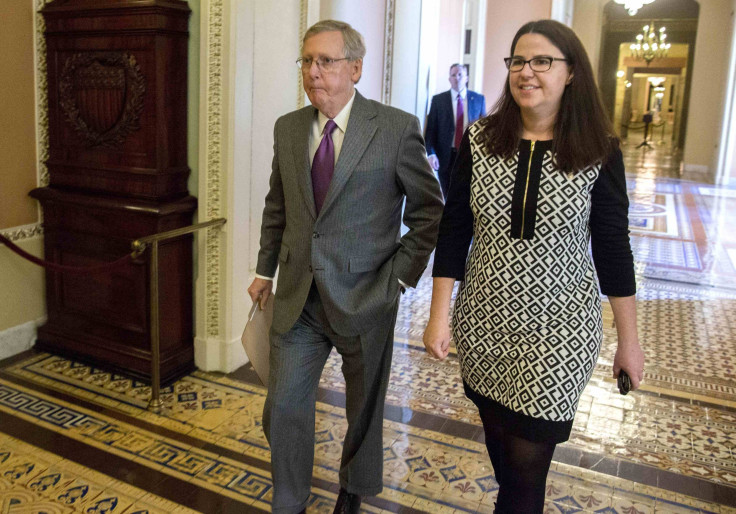DHS Immigration Shutdown: Senate Again Refuses House Tactic

WASHINGTON -- The Senate just isn’t going to go along with House Republicans’ plan to use Department of Homeland Security funding to fight President Barack Obama’s executive orders on immigration. For a fifth time, Senate Democrats blocked a procedural motion that would have allowed House Republican plans to come to fruition, and House Speaker John Boehner’s options appear to be running out.
After the Democrats blocked the motion, the Senate voted 58-31 with a bipartisan majority to send their DHS funding bill -- with no immigration provisions -- back to the House. Attention now turns to Boehner and whether he will now allow the House to vote on the Senate version, referred to as a “clean” bill. Democratic leaders have suggested that the speaker might be willing to capitulate and abandon the fight over immigration. Between Democrats and moderate Republicans, the bill likely would easily pass the House.
Doing so would come at great political cost to Boehner. The most conservative members of his chamber have been pressuring him to keep up the fight. But after multiple failed attempts -- including the inability to get enough votes to fund DHS for three weeks and try to box Democrats into a corner -- Congress now has until Friday to keep the agency from shutting down, after passing a last-minute stopgap measure to fund DHS for an additional week last week.
Senate Democrats and Republicans, who control the chamber, struck a deal last week. They would vote to fund the agency for the remainder of the fiscal year -- which ends in September -- and Democrats would allow a bill to be debated that would reverse Obama’s immigration executive orders.
It was seen as a compromise. House Republicans were trying to force Obama to abandon his immigration orders in order to fund DHS. But Senate Democrats voted four times to block that effort. So Senate Majority Leader Mitch McConnell agreed to separate the two efforts. The resulting Senate bill that would fully fund DHS is known as a “clean bill,” meaning it contained no additional policy changes.
But House Republicans became unhappy with McConnell’s decision, setting off a intra-party dispute about how to best oppose the president. Many in the Senate wanted to fund DHS and find other means to oppose the president. Those in the House stuck to their fight.
So in an attempt to keep their opposition going, House Republicans tried to make another procedural move on Friday. They would take the Senate-passed clean funding bill and request a conference. A conference is used to negotiate agreements between the House and the Senate when they pass similar bills.
But Senate Minority Leader Harry Reid has been adamantly opposed to going to conference. In a conference, the Democrats would lose all their leverage and Republicans would control the entire process. The conference process has rarely been used in Congress because minority parties don’t want to relinquish their influence. When Democrats controlled the Senate, Republicans blocked efforts to take the Affordable Care Act to conference. And last year, House Republicans refused to pass an immigration bill that would have the potential of creating a conference for fear it would be used to force comprehensive reforms.
The decision to request a conference by Republicans was in part to try to shift blame to Democrats should the stalemate continue and DHS be shut down. If the last group standing in the way of a funding bill passing is Senate Democrats, House Republicans were hoping to use that blame as leverage to try to force the immigration changes into the bill.
But that’s a risky gamble. Even some Republicans are acknowledging it’s unlikely that message will stick. Republicans control both chambers of Congress. It was the GOP’s choice to add the changes to the bill. And the 2013 shutdown, which the public largely pinned on Republicans, makes voters more likely to believe the GOP was going for a repeat.
So now Congress is back where they started and just a few more days to figure it out. House Minority Leader Nancy Pelosi told her members on Friday that if they supported the one-week stopgap, she was confident that Boehner would allow a House vote on the clean Senate-passed bill. “Your vote tonight will assure that we will vote for full funding next week,” Pelosi wrote to her members.
But both sides -- Republicans and Democrats -- spent Monday insisting there was no formal deal.
© Copyright IBTimes 2024. All rights reserved.






















